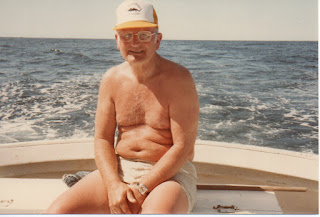Genesis 45:3-11, 15, 1 Corinthians 15:35-38,42-50, Luke
6:27-38, Psalm 37:1-12, 41-42
The kingdom that Jesus preached and lived was all about a
glorious, uproarious, absurd, generosity. Think about the best thing you can do
for the worst person and go ahead and do it. That’s what this continuation of
the Sermon on the Plain is all about. We remember what comes immediately before
the passage we just heard, we call that the Beatitudes, and we heard all about
that last week. This continues Jesus painting the picture of what God’s
absurdly abundant love looks like.
The trouble in the text is that it can’t be true. Love your
enemies? Do good to people who hate you? Bless people who curse you? Pray for
people who treat you badly? If someone hits you on the cheek offer him the
other cheek? If someone takes away your coat don’t stop them from taking your
shirt?
That is not the way the world works. That is not the way business
works, or government. And why would we want it to be that way anyway. Who cares
about enemies, who cares about people who hate you, or give you a raw deal, or
curse you. Who cares about the people who treat you badly, you want them out of
your life! Who cares? This is the cause and effect world we live in. Love
deserves love, hate deserves hate, deeds both good and bad should be repaid in
kind, force must be returned with force, violence begets violence, and so on
and so on. It seems that many people are involved in the unholy work of ripping
and shredding our social fabric, through dehumanizing language, racial
prejudice, misogyny, and exclusion. Sound bites lead news stories that heap
judgment upon judgment, and unless we question, research, and educate
ourselves, we are lead to believe that what we read is all fake news anyway.
But the kingdom that Jesus preached and lived was all about
a glorious, uproarious, absurd, generosity. That is the good news that we hear
in Luke, even though it makes no sense. Love your enemies, do good to those who
hate you, bless those who curse you, pray for those who abuse you. If anyone
strikes you on the cheek, offer the other also; and from anyone who takes away
your coat do not withhold even your shirt. Do to others as you would have them
do to you.
Is this a command or a promise? If it’s a command then it is
just one more thing someone has told us and that we’ll be held accountable for
and then we’ll likely continue to live in fear and, while we may behave a
little better, at least when someone’s watching, ultimately be no different.
But if it’s a promise, then we might just imagine that there
is another way, a way of love, available to us at this very moment, and see
each other as gifts of God and experience the transformation Jesus offers. I
believe this is the case, and that other world, that kingdom, that way of love,
is right here in front of us, right here for us to participate in.
Because Love itself, when you think about it, makes no sense
in a kind of mechanistic view of the universe, or a transactional way to
interact. For love, defined most simply, is seeking the good of another above
your own. Love is not a means to an end, it is an end unto itself which, in
turn, creates morality and justice and all the rest of the things we strive for
yet fail to find or manifest without love. Love is not about how you feel, it
is about what you do.
So we are about the holy work of love. And this kind of work
is about building relationships. If people in our community and in our
neighborhood are about the unholy work of ripping and shredding our social
fabric through dehumanizing language, racial prejudice, misogyny, and
exclusion, then we must be about the holy work of building relationships.
And the good news is that is possible because of God’s
absurdly abundant love. It is possible because each and every one of us is
created in God’s image, each and every one of us has the mark of God’s love
upon us. Even those who don’t know it; even those who would not do to others as
you would have them do to you. The holy work of love is possible because Jesus
is showing us how. Do not judge. Forgive.
And ultimately the place where Jesus shows us about judging
and forgiving is on the cross. Jesus says from the cross, forgive them, they do
not know what they are doing. It is in that horrifying moment, it is in that
place of death, that love wins.
I am reminded of the story of Ruby Bridges. In 1960, young
Ruby was six years old, and one of the first children to be bused to an all
white school to begin the process of integrating people whose skin colors where
different. Ruby was called names, and some wanted to hurt her. Ruby was
accompanied by federal marshals to protect her. She would stop on her way to
school and on her way home each day to pray, “Please, God, try to forgive those
people. Because even if they say those bad things, they don’t know what they’re
doing. So you could forgive them. Just like you did those folds a long time ago
when they said terrible things about you.”
The kingdom that Jesus preached and lived and died for is
all about a glorious, uproarious, absurd, generosity. A generosity that
includes all who are created in God’s image, all of God’s beloveds. An absurdly
abundant love that includes all and forgives all, loves all. Let us pray it is
so. Amen.






